Breaking the Grass Ceiling
An innovative IFC project is helping to empower women in South Africa's agriculture sector.
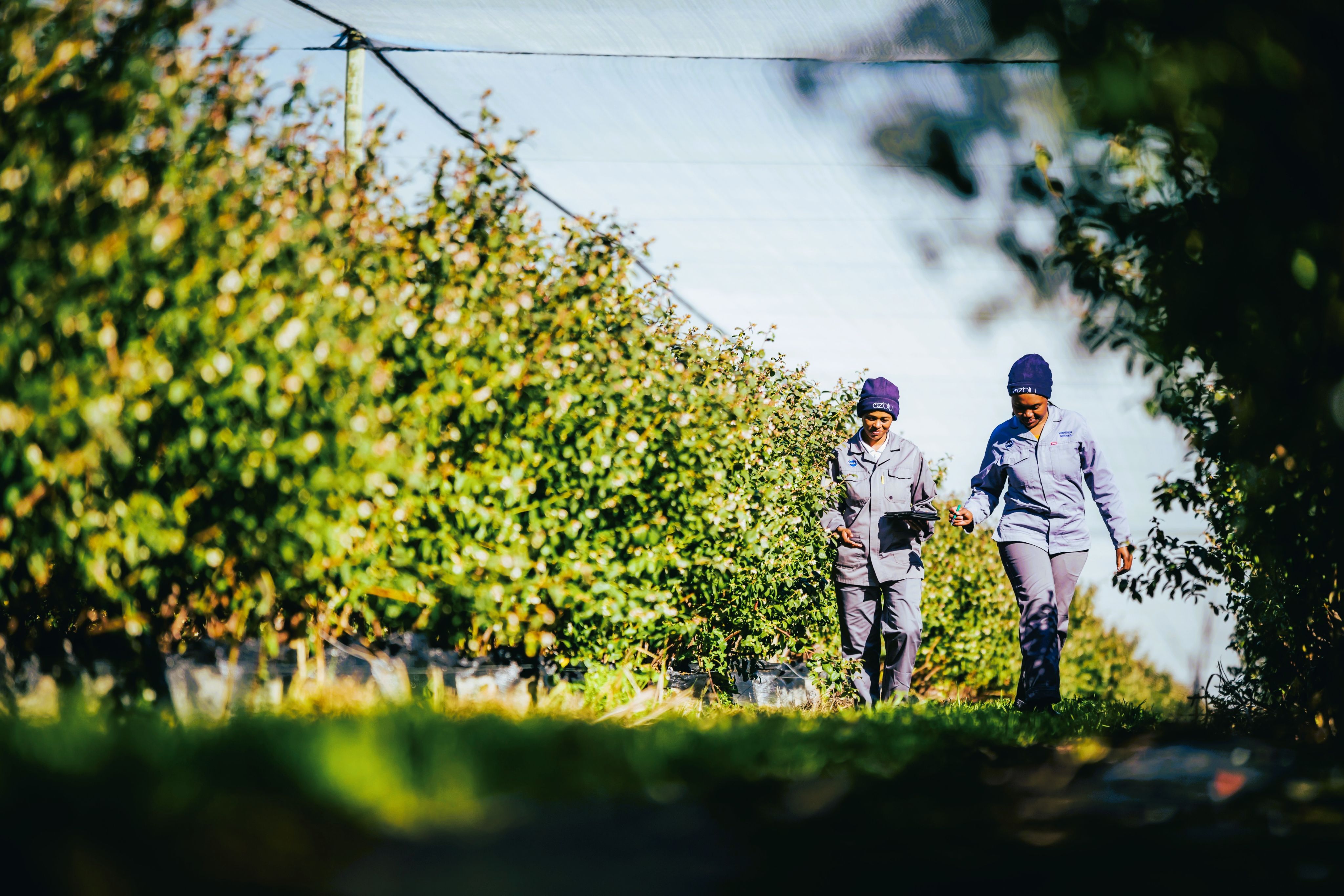
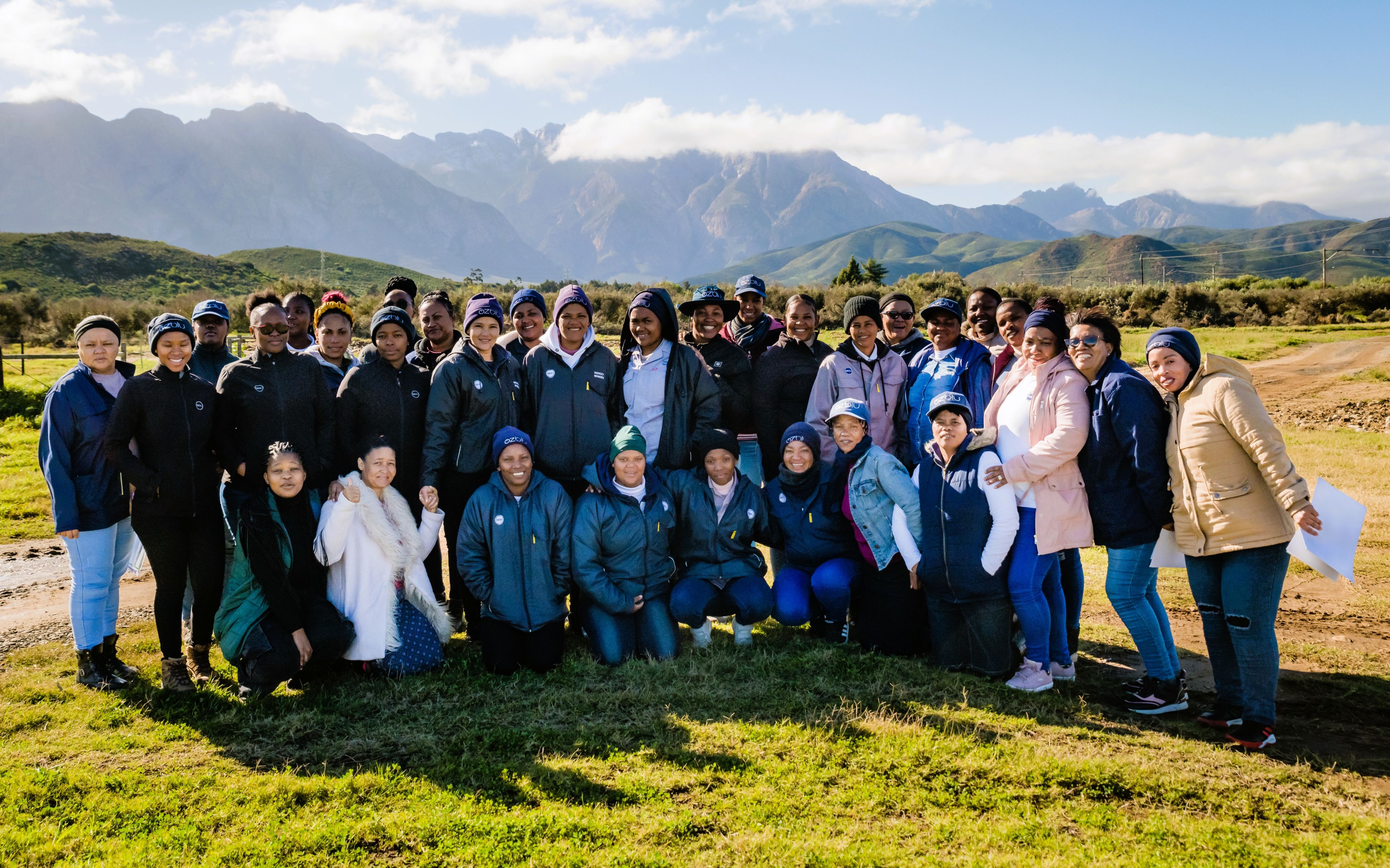
At South Africa’s United Exports—originally a fruit exporter but now involved in all parts of agricultural production—almost 60 percent of employees are women. The majority are in entry-level temporary positions.
It’s a situation that’s common across the country’s agriculture sector. According to a 2020 study, women in agriculture accounted for just 16 percent of management roles, though they comprised 34 percent of full-time employees and 52 percent of seasonal workers.
To help address the issue, United Exports has embarked on a journey to promote more women into management roles. This included a pioneering participation in IFC’s Gender Equality and Returns (GEAR) program, which helps women take on more leadership roles.
As Helen Clarke, United Exports’ Human Resources Director, says, “People are our greatest asset, so developing their capacity and commitment to deliver on the broader business objectives is paramount.”
GEAR, which started as a joint initiative between IFC and the International Labor Organization, had already been very successful in the clothing sector in Asia, helping hundreds of women in garment factories from Bangladesh to Vietnam get promoted to supervisory roles.
With United Exports, IFC adapted GEAR to the agribusiness sector for the first time.
“The program was very well aligned with United Exports’ values, vision, and strategy, which are all centered on people development,” says Diane Davoine, Program Lead in IFC’s Workforce and Gender Advisory, who was instrumental in developing the project with United Exports.
IFC, in collaboration with United Exports and the Koue Bokkeveld Training Centre, trained 34 women from across the company and from diverse backgrounds to nurture their leadership skills and equip them to thrive.
The four-month program has proved transformational, with participants reporting personal growth and sharper communication and management skills, as well as greater productivity. As one woman who took part said, “I met me for the first time.”
United Exports’ Learning & Development Manager Lucy Blackburn says the project “unearthed the depth and wealth of our female talent and wisdom. It also showed we value female empowerment and are determined to spend time, energy, and money on it.”
The success of the pilot has now laid the foundation for more GEAR projects in Africa’s agribusiness sector in the future.
Here are the stories of four women who took part:
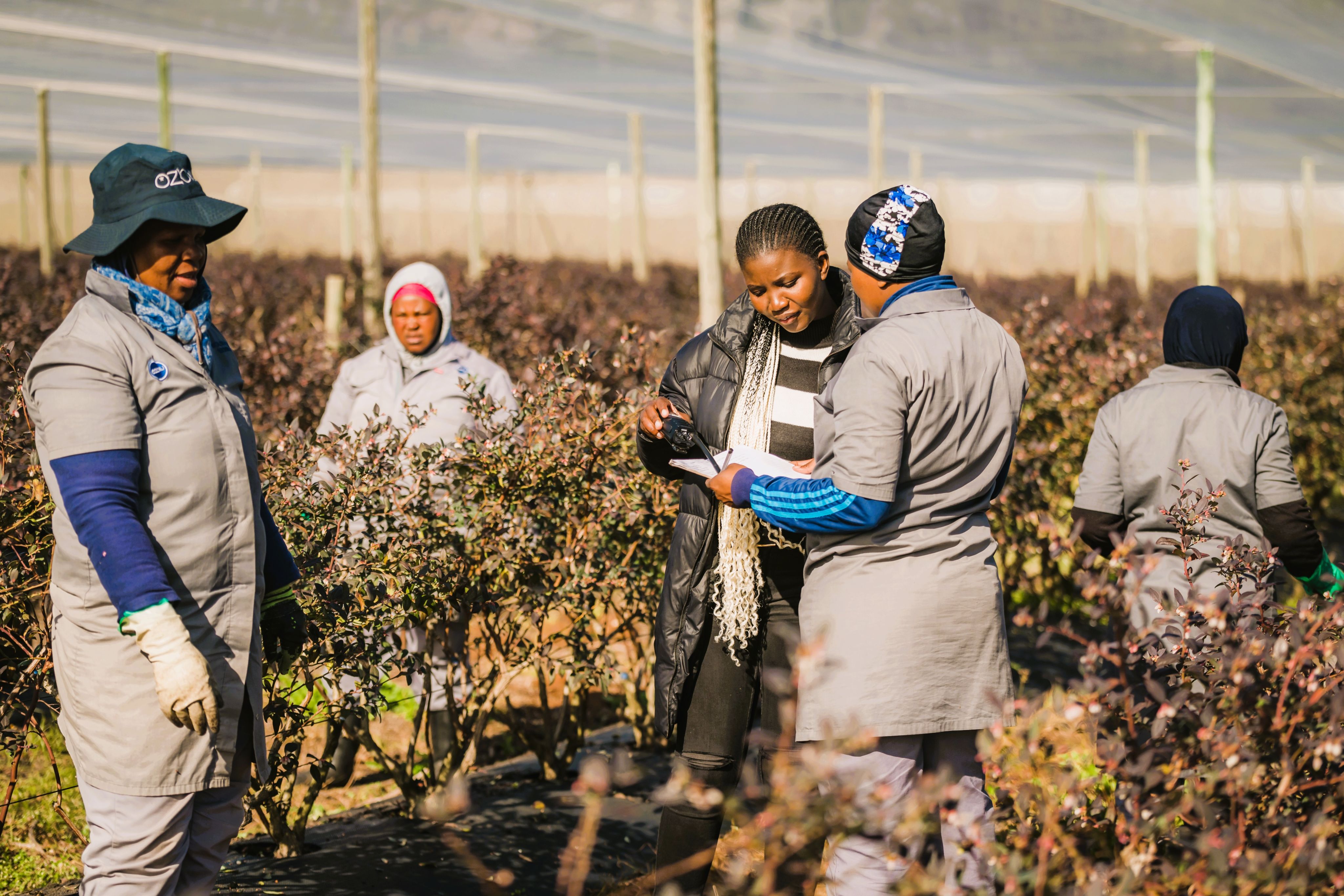
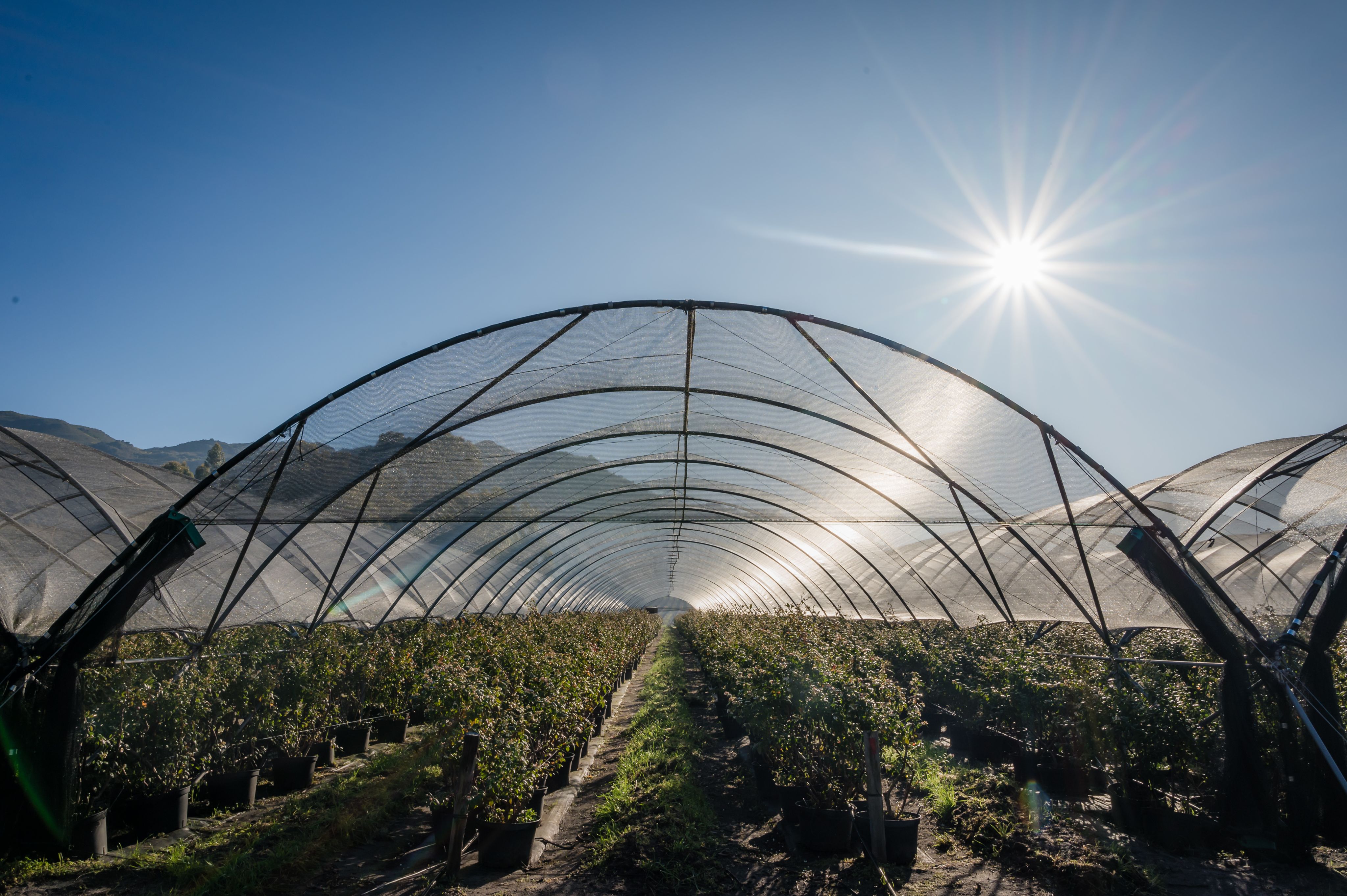
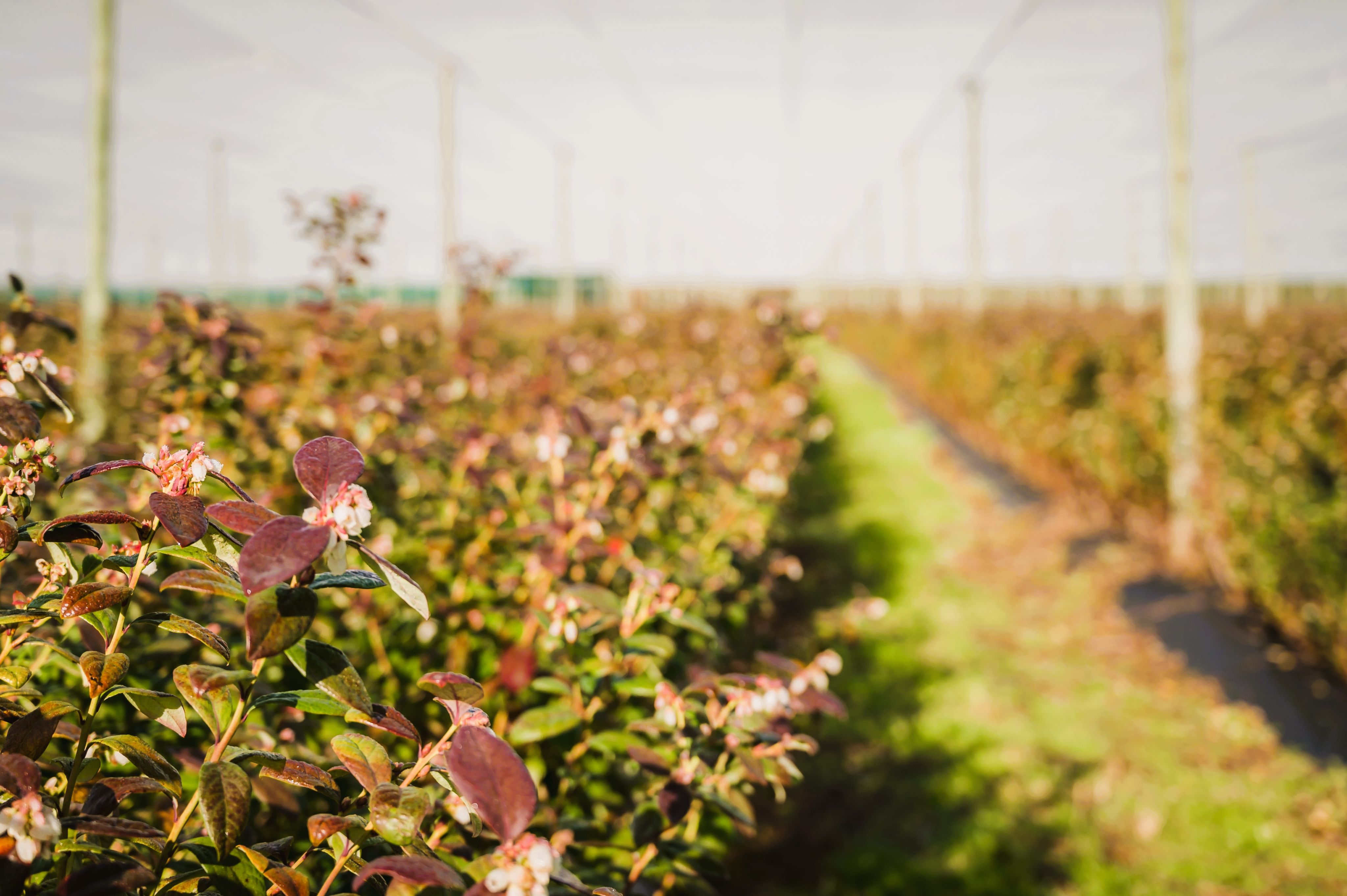
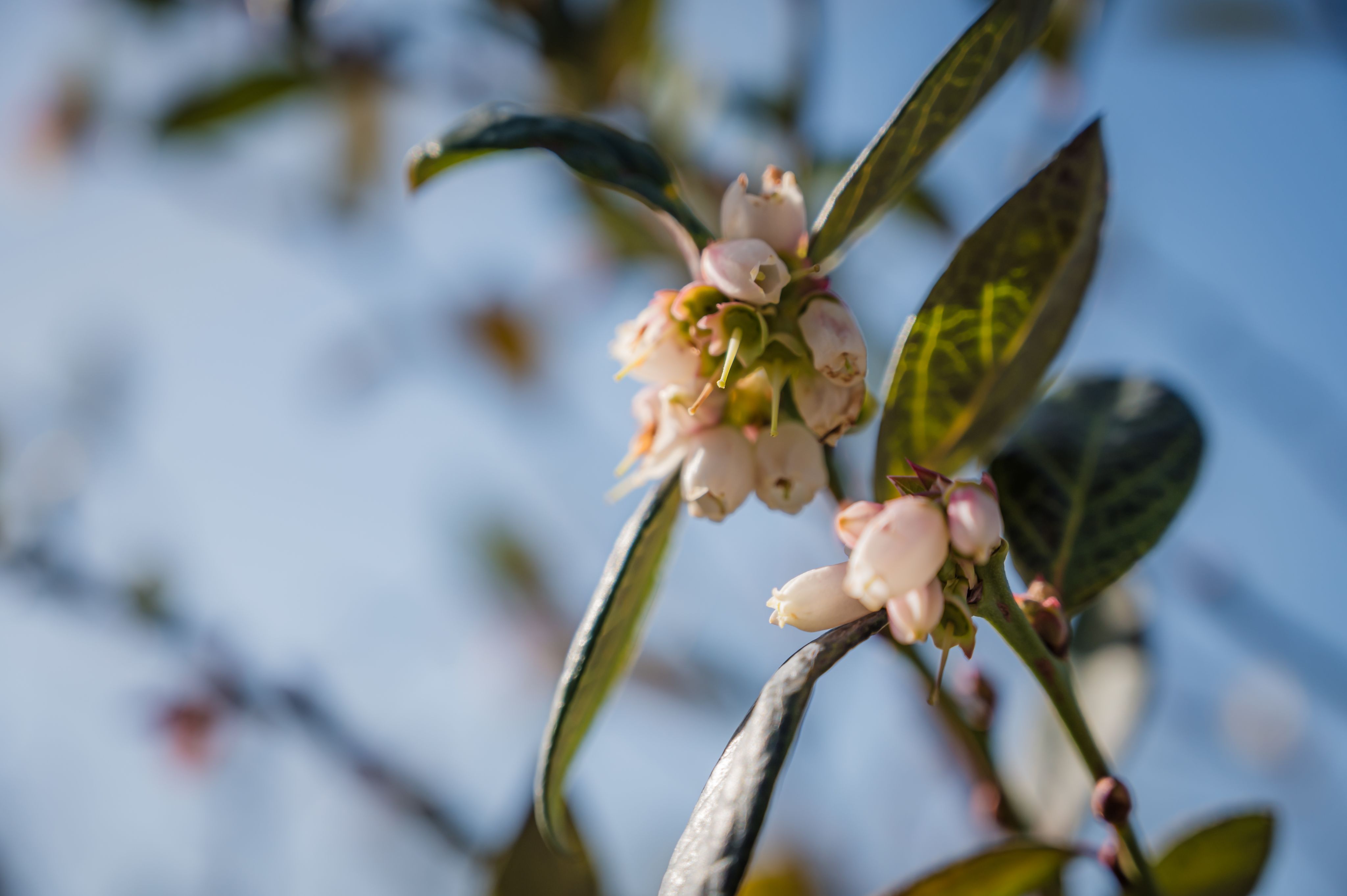
Kwakhona
“Many believe this is a man’s world. Finding your place as a female is the biggest challenge.”
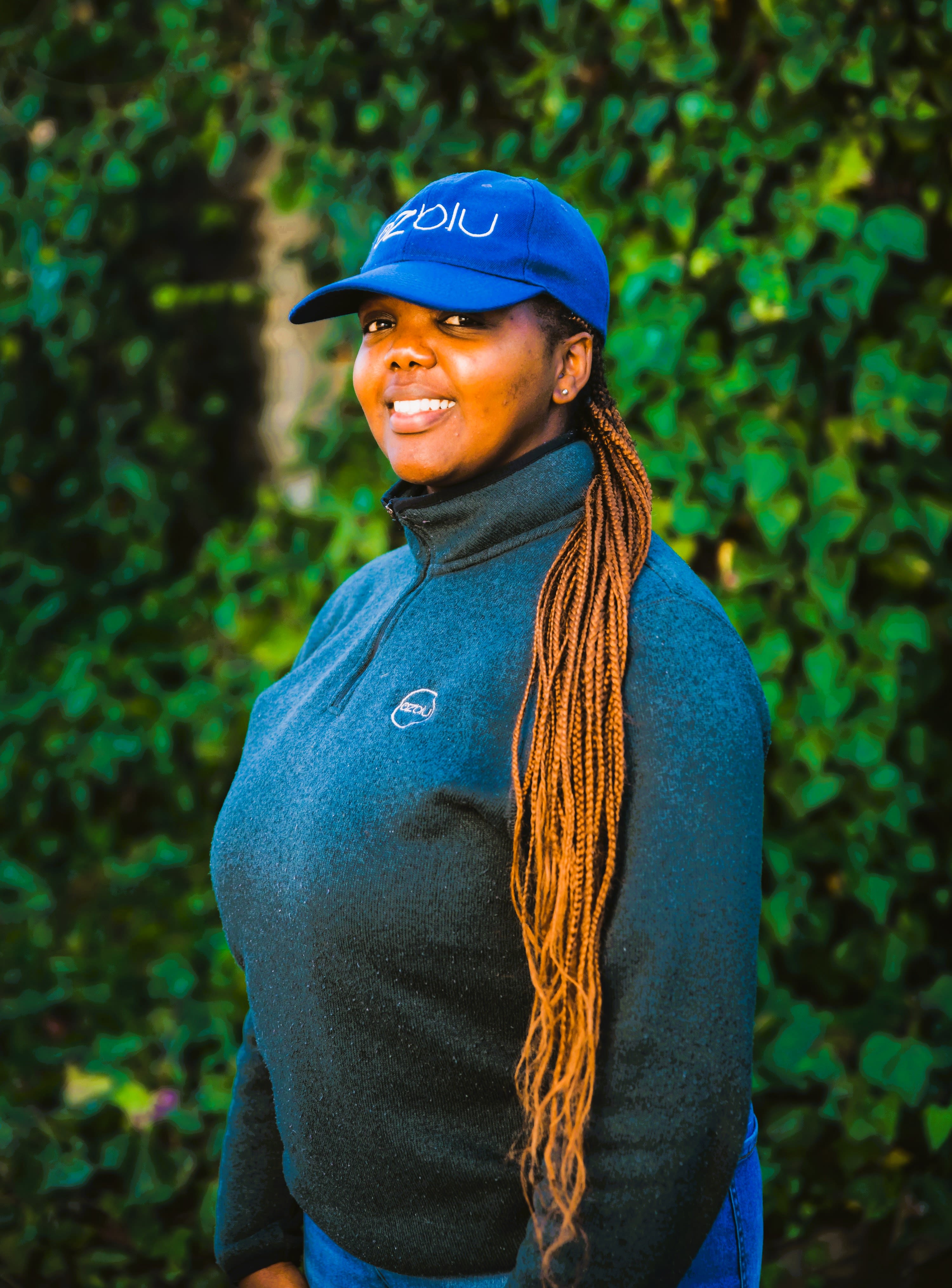
Kwakhona Mpotulo, 27, from South Africa’s Eastern Cape, was always fascinated by the sciences.
“It was the science behind agriculture that interested me,” she says. “Most people, when they think of agriculture, think of farms—basically just planting and growing something. I was amazed at how much science is behind it all.”
After studying crop production at university, she entered United Exports’ graduate program in 2021. She became a production assistant in 2022 but she found the leadership role challenging.
“I came into this position without experience, and as a young female of color—three big obstacles,” she said.
“This industry is mostly led by men and most of the workers are men. They believe it’s a man’s world. Finding my place as a female has been my biggest challenge.”
“I came into this position without experience, and as a young female of color—three big obstacles.”
Mpotulo says the leadership training program has supported her massively—particularly in three key areas.
“The first is resolving conflict. There is always conflict when you’re leading, and it was something I would run away from before. The second is communication—that what I said might not be what someone else hears,” she says.
“The third is situational leadership. I learned you can’t lead an experienced person the same as you would an inexperienced person, and I now feel comfortable applying that to different groups.”
The program has renewed her confidence in herself and her ability to lead.
“I think differently now. I’m able to understand things better, and I am also able to think and reason as a leader. The most important thing about being a leader is to understand the people you are leading.
"If there is no understanding, people will not follow you."
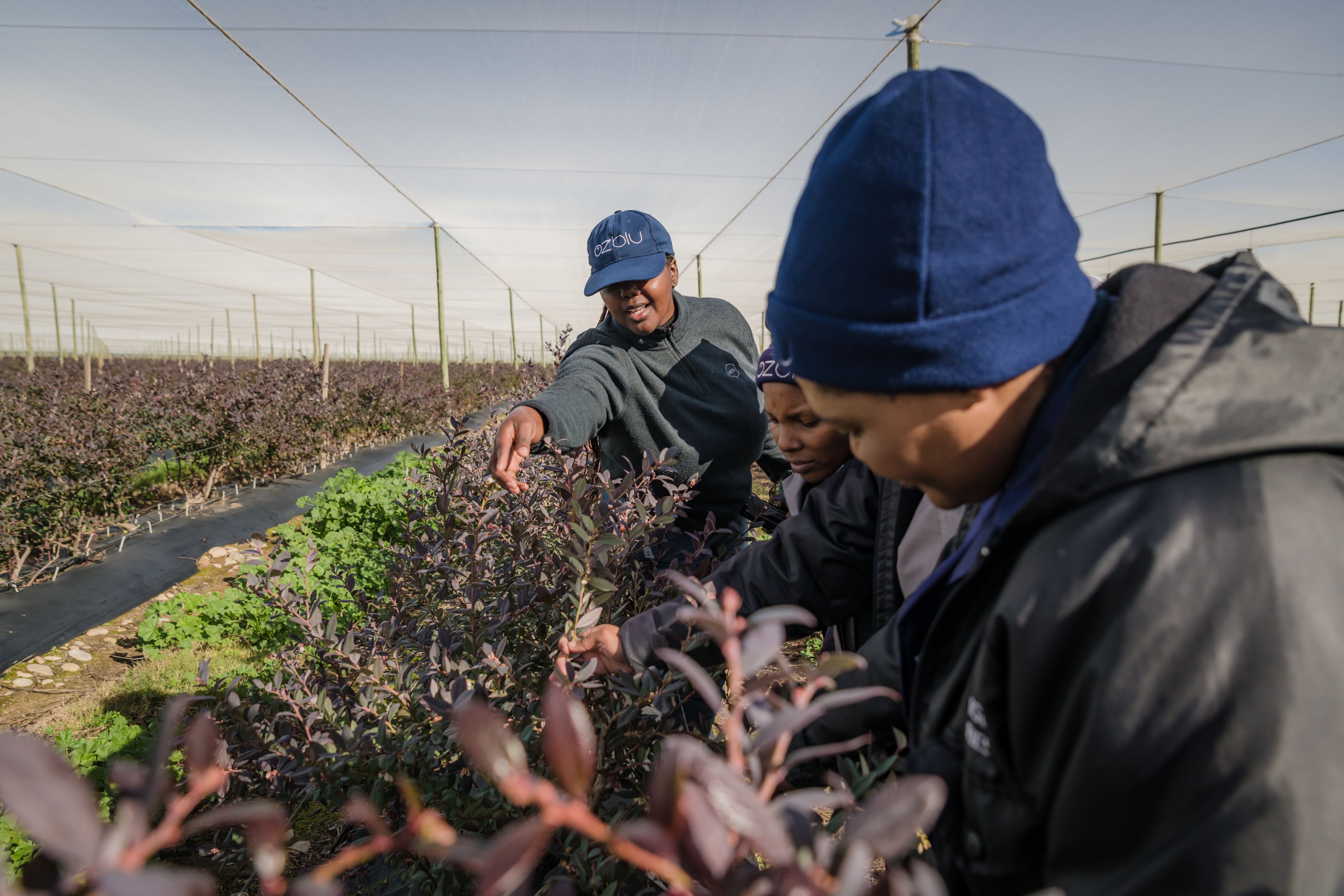
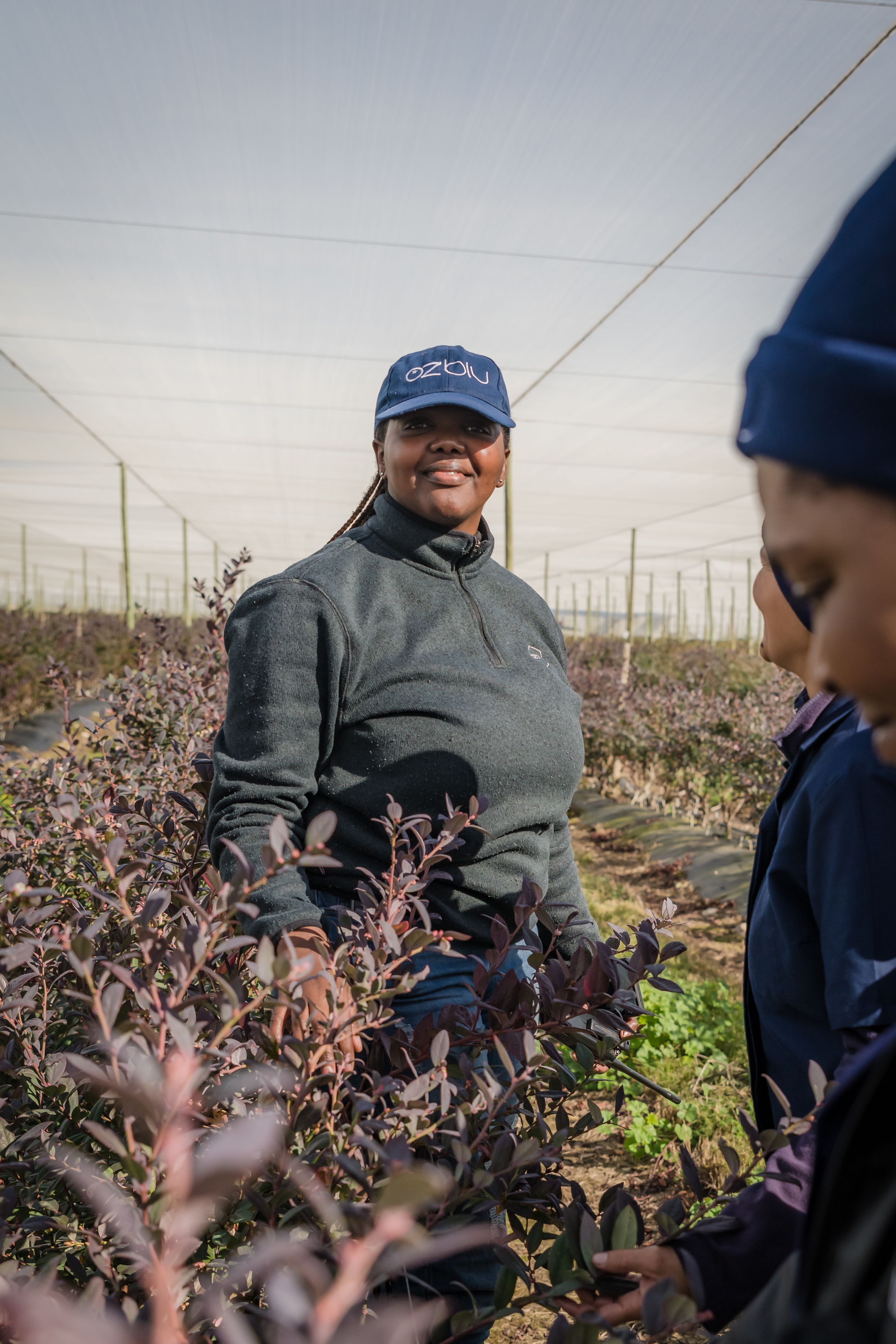
Thembeka
"I met me for the first time."
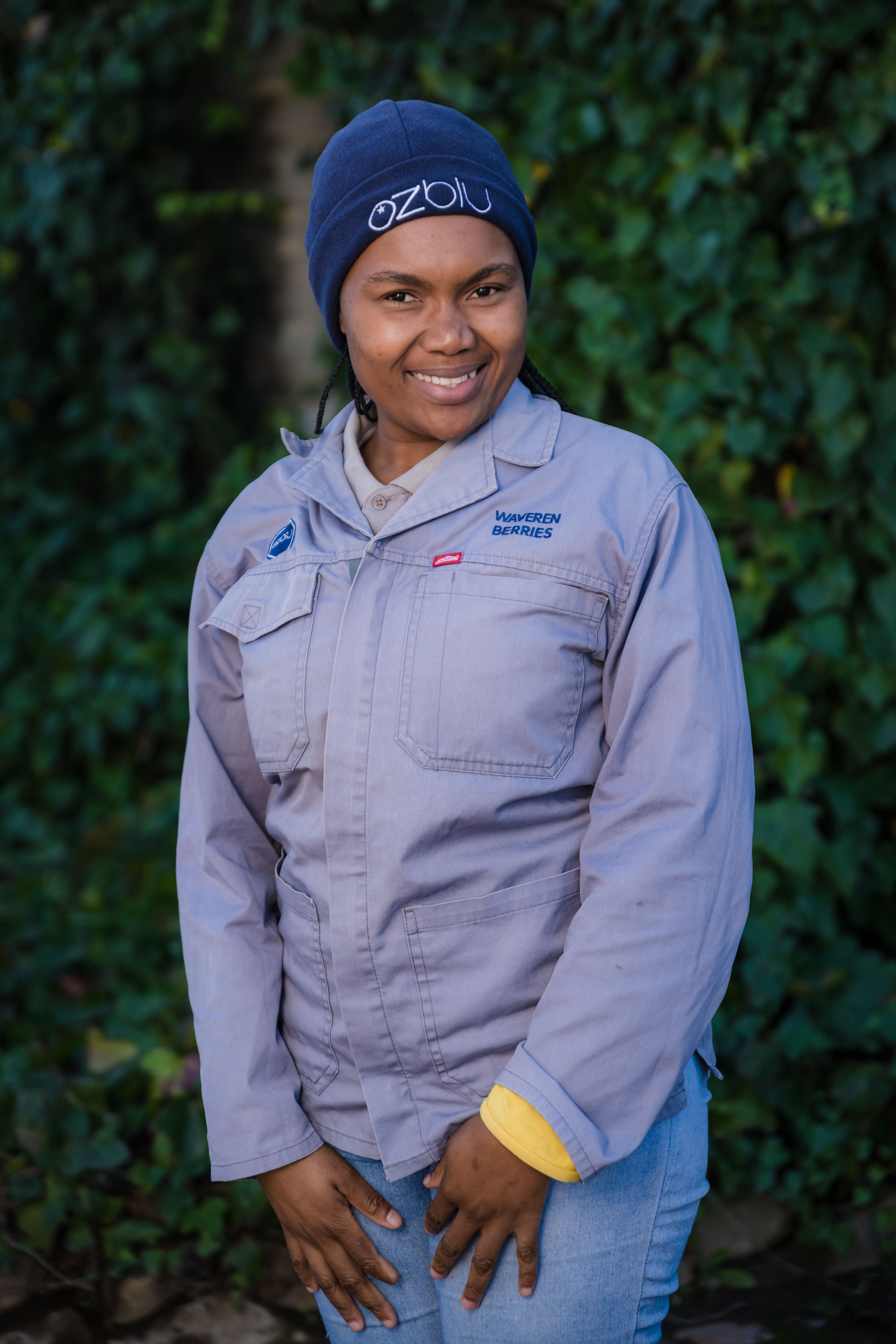
Thembeka Mabangula, 27, from the Free State Province, joined United Exports as a picker in 2021 and was soon promoted to team leader. Last year, she became a scout monitoring plant health and growth.
She says the leadership training has increased her confidence in her abilities.
“It’s like if I met me for the first time, so I know I’m capable and I know I can do it. A coach helps you to see and know yourself. They build confidence in you,” she says. “It’s very important to know yourself to understand others and build meaningful relationships.”
Another key lesson was that leadership isn’t a right—it’s a responsibility.
“I learned to listen more and talk less. I also learned I didn’t have to do everything on my own. And I learned to communicate better with management. They understand where I come from and they listen to me, so it feels different.”
"It’s very important to know yourself to understand others and build meaningful relationships.”
That confidence has encouraged her to pursue longstanding goals and dreams.
“My goal is to obtain a degree in horticulture, which is my passion, and be in a space where I can help other people. I could study part-time while I continue working here,” she says.
In the meantime, Mabangula has started a nationally recognized plant production training course at United Exports, and enrolled in a life and environmental sciences course at university.
Her advice for others?
“Get to know yourself first and learn to live with your values. Live what you believe in and not what other people think or want you to be. Be you and stand up for what you believe in. That goes a long way.”
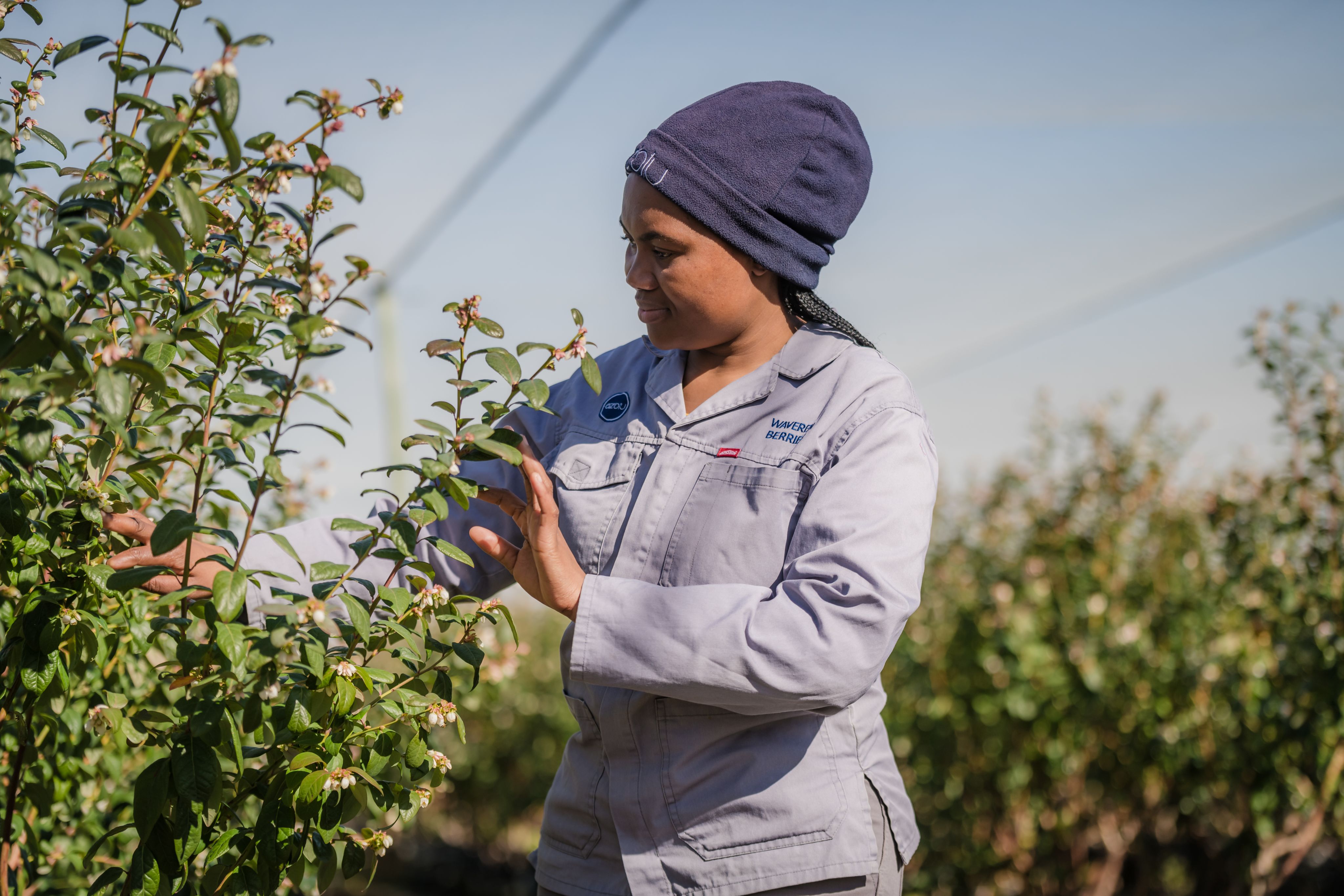
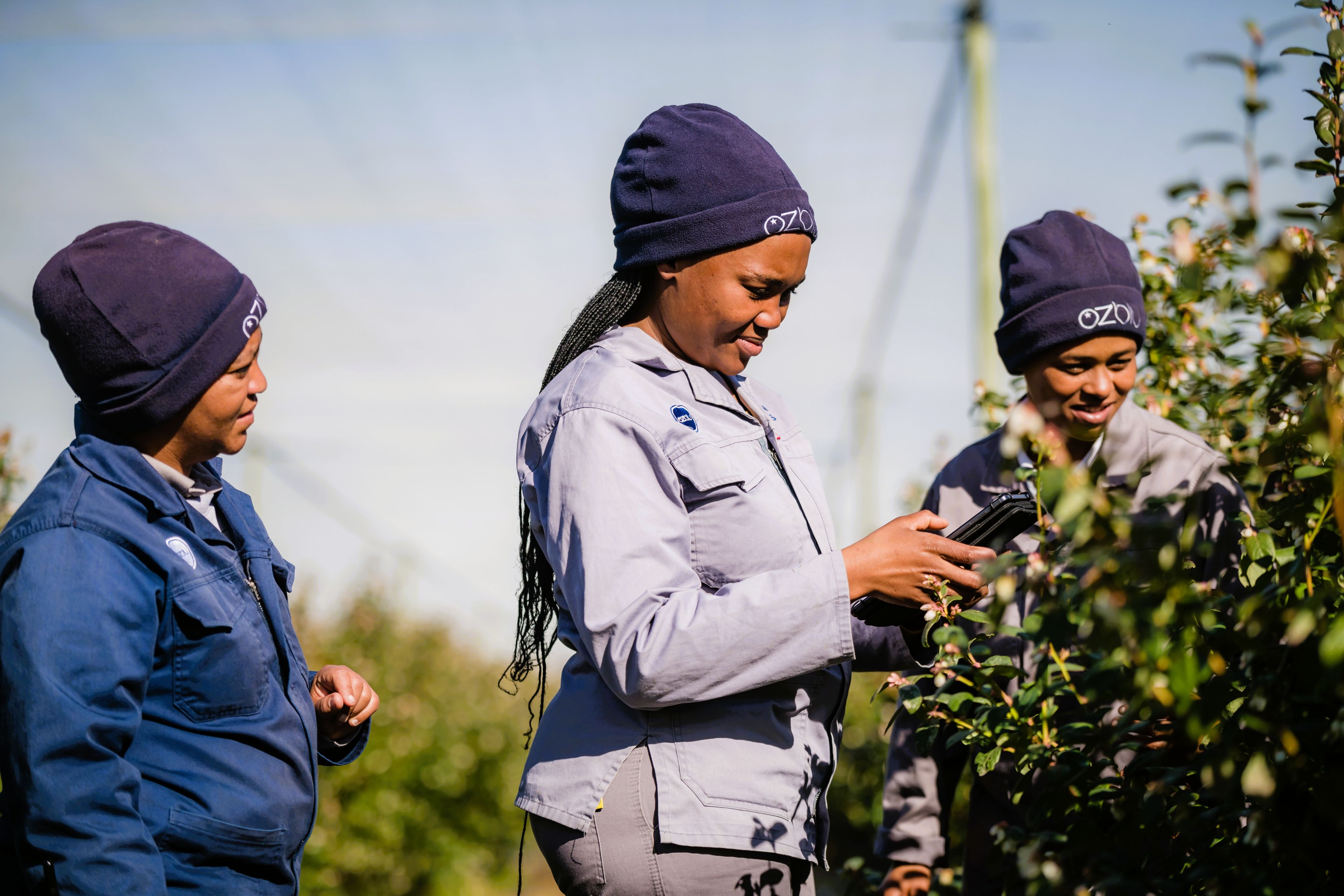
Rosedine
“It doesn’t serve you to not pursue your potential, or your goals and dreams.”
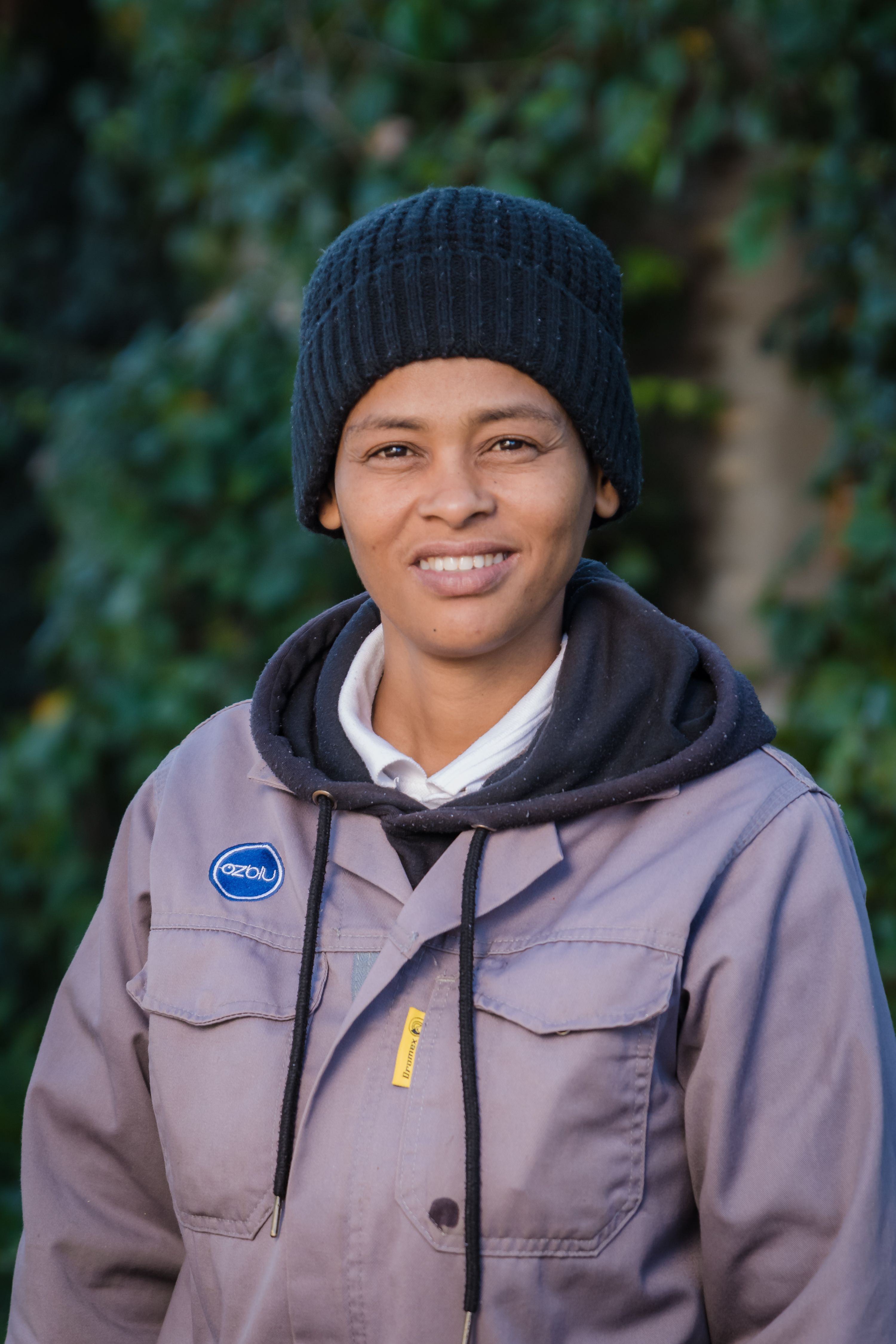
Rosedine Manuel, 29, from Tulbagh in the Western Cape, started as a general worker at United Exports three years ago. She soon progressed to a permanent position as a scout.
She calls the leadership program “lifechanging” and says one of her biggest learnings was understanding her own potential.
“Before the training, I never thought I was capable of everything I am doing now. I learned that the way I had been living, where I was hiding my abilities, did not serve me,” she says.
“It does not serve you to not pursue your potential, or your goals and dreams. If you are capable of something, don’t hide yourself, and don’t allow others to hold you back because you are worried about what they will say.”
“Before the training, I never thought I was capable of everything I am doing now.”
Like many on the course, Manuel says learning how to resolve conflict and communicate better were key takeaways.
“I used to walk away when I observed a conflict situation, but I have learned it’s better to try and solve it in a civil manner. I also learned mistakes will be made, but you can learn from those mistakes.
“And I learned how to communicate and understand your body language when you speak to people. People notice your tone and the way you speak, which is how conflicts start.”
Her goal now is to grow further at the company.
“I want to develop my management skills and learn more about my current role, and about quality in fruit.
“I never thought when I started that I would become a scout, a quality controller, a first aider, a health and safety officer, or on the committee. United Exports taught me there are a lot of opportunities in the world,” she says.
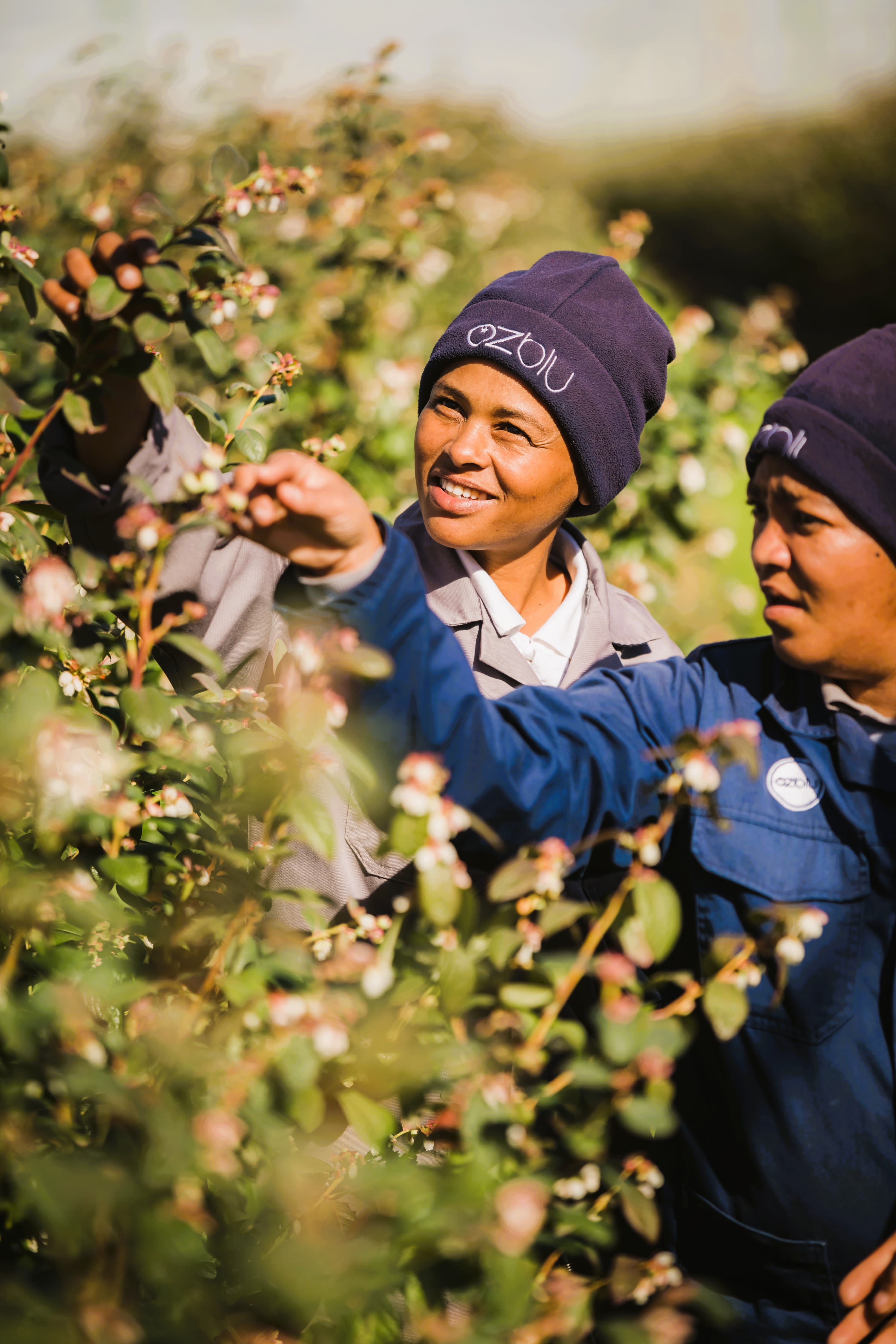
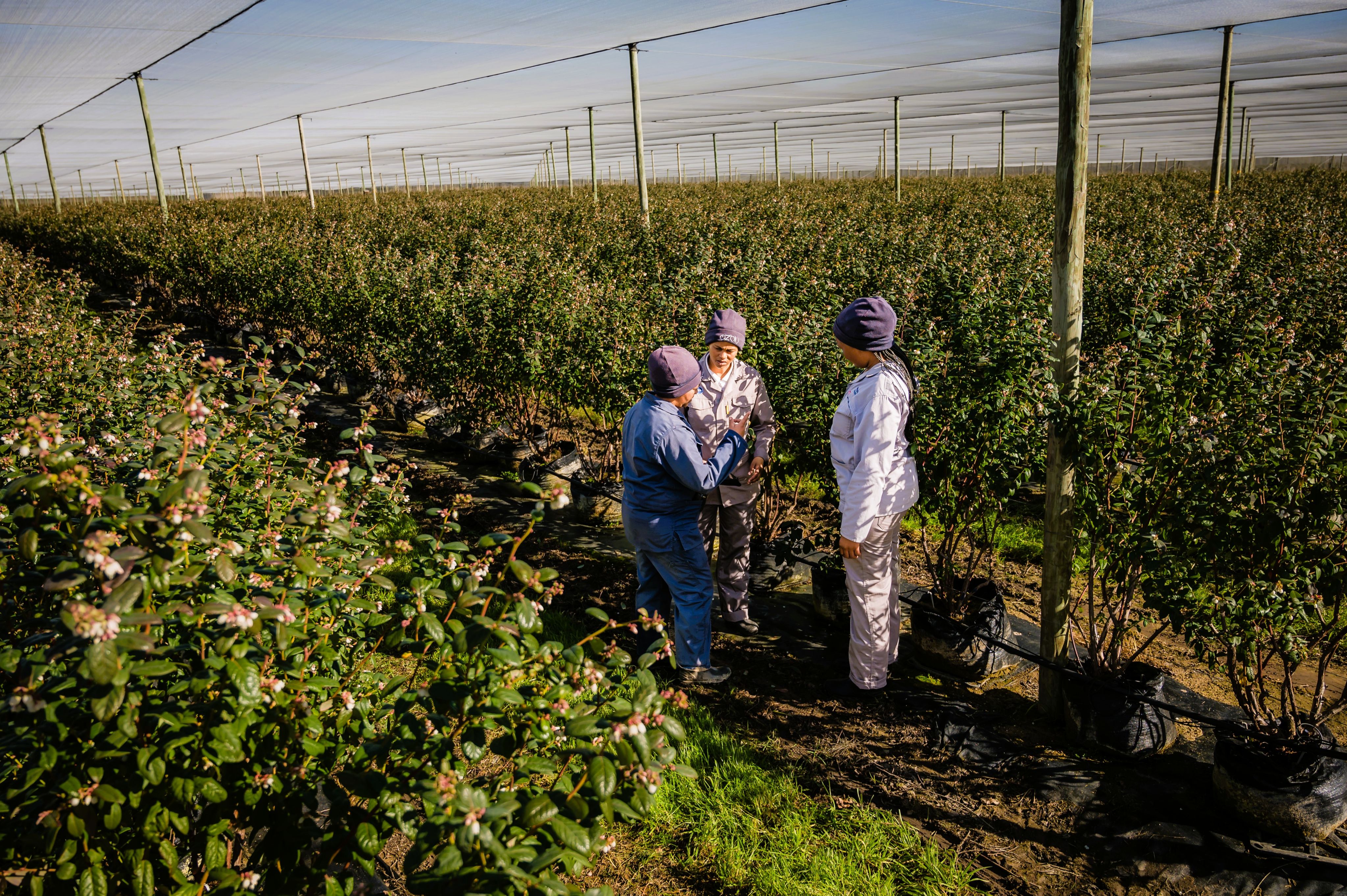
Awongiwe
“The industry can be very closed for women. You have to break some boundaries.”
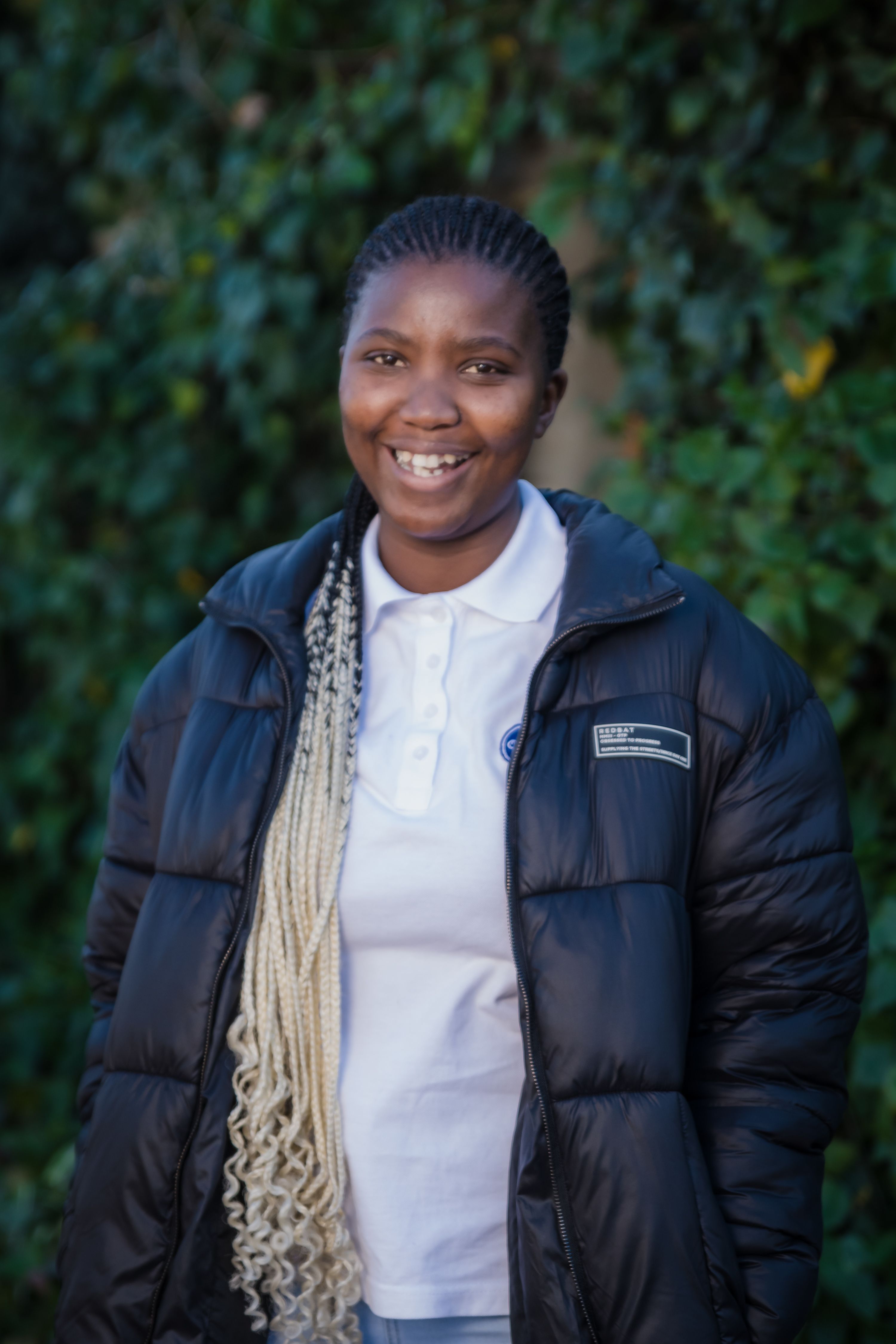
Awongiwe Mantambo, 26, from the Eastern Cape, says her love of agriculture started young.
“A teacher in high school used to say agriculture is the fountain of life, because we wouldn’t survive without it. We were producing our own vegetables, so we were trying to create food security within our community.”
After studying crop science at university, she joined United Exports’ graduate placement program. Last year, she started a permanent role as a production officer.
“The biggest obstacle I have come across in this industry in South Africa, and as a woman of color, is that it’s very closed off. You have to break some boundaries and make your voice heard,” she says.
“The world is your oyster and you can be absolutely anything you want to be in this 21st century.”
Mantambo says the training program helped her become a better manager, and also renewed her faith in her ability to do what’s often seen as a “male” job.
“I have never been happier. When we started the program, we were closed off, but we soon opened up and started to trust each other.
“It evoked strengths we didn’t know we had. We were able to work as women in the frontline to say ‘this is how we want things to be done,’ and the managers would hear us and implement those changes.”
That has filled her with confidence for the future. “I want to be an inspector one day. I will be this confident, young, female, black person who is able to project and work effectively with other people,” she says.
It’s a message she wishes she could pass on to her younger self.
“I would say, ‘You are way smarter than you think. Your background, race and gender don’t matter. The world is your oyster, and you can be absolutely anything you want to be in this 21st century.’”
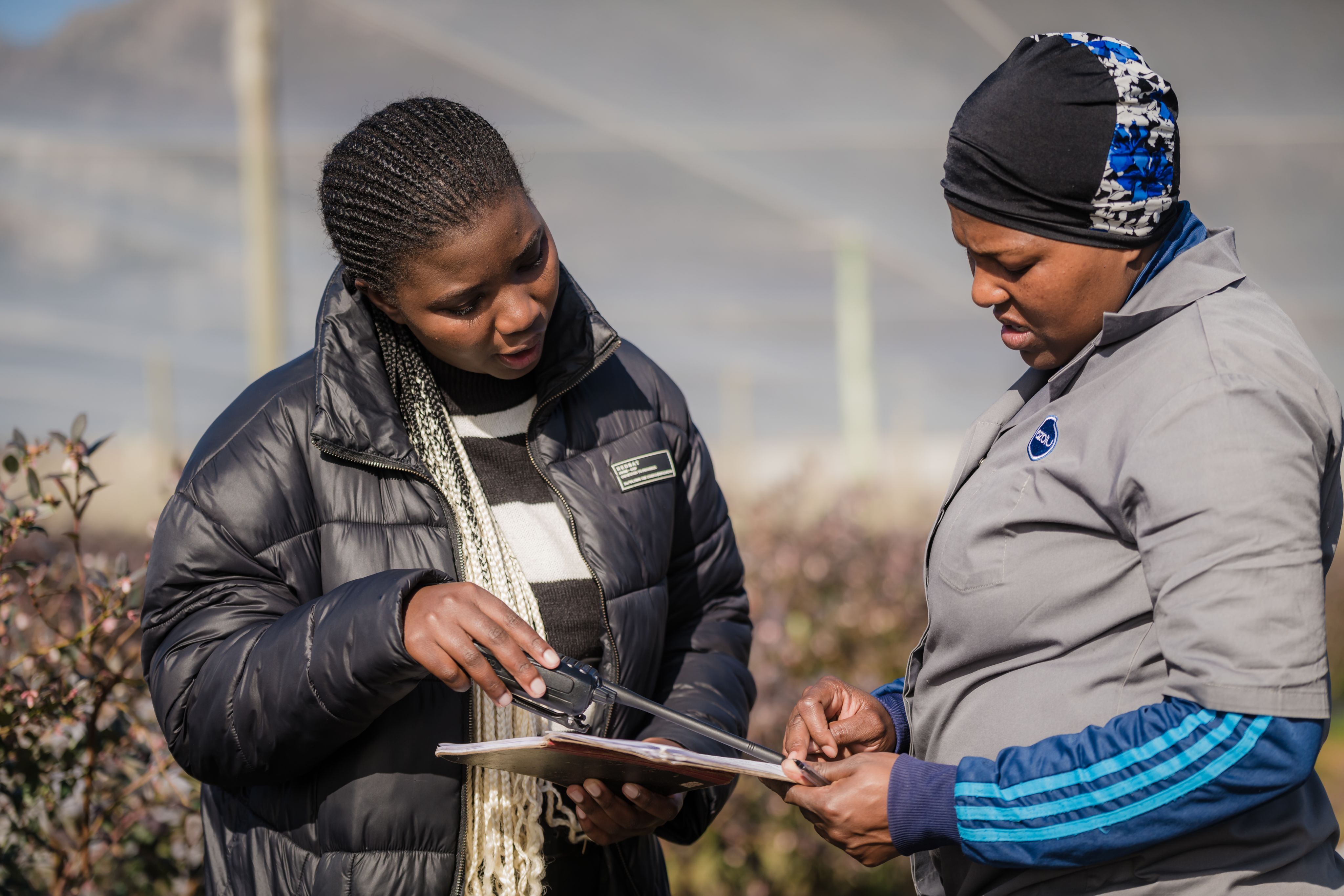
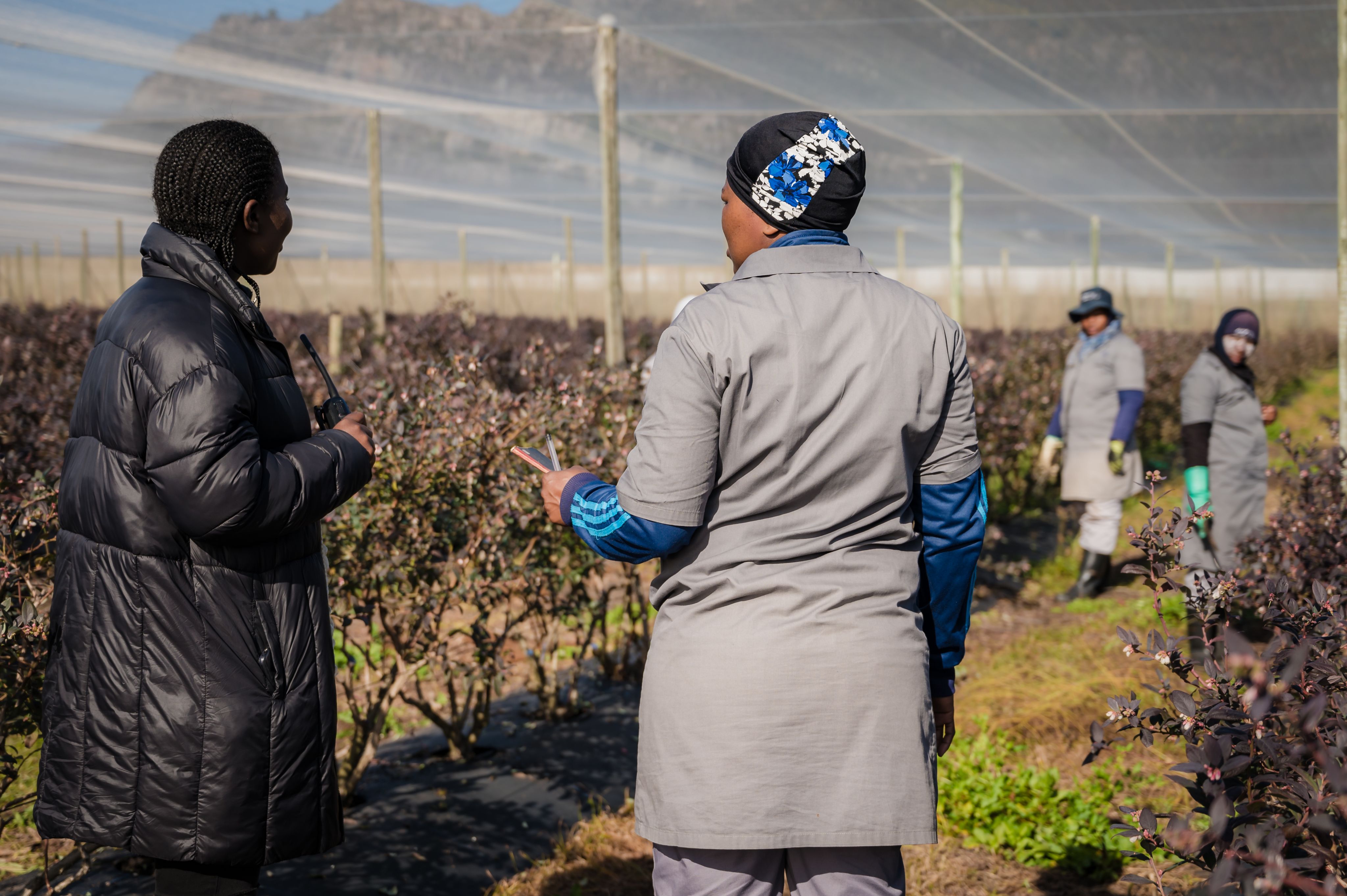
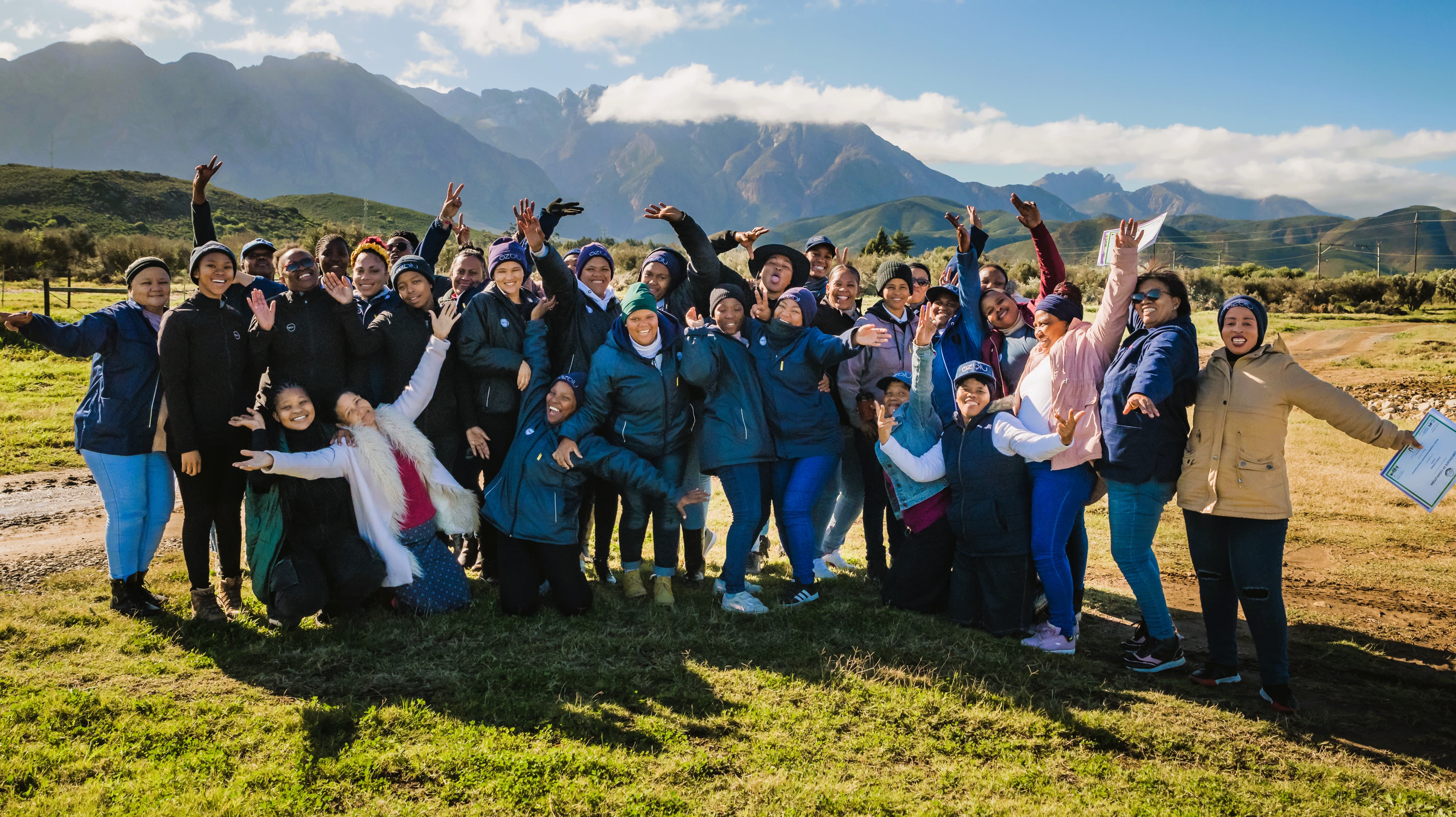
This project was made possible through financial support from the World Bank’s Jobs Umbrella Multi-Donor Trust Fund (MDTF), which is supported by the UK’s Foreign, Commonwealth & Development Office; the governments of Austria, Germany, and Italy; the Austrian Development Agency; and the Swedish International Development Cooperation Agency.
Published in March 2024
